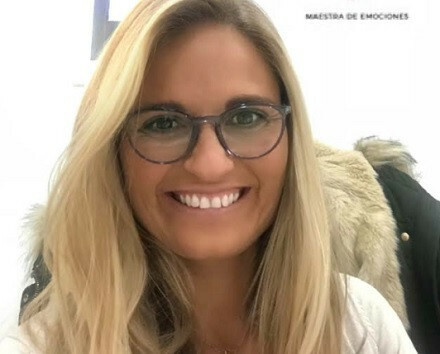Interview with Elena Tecglen: what can a coach give me?
The concept of coaching is so broad that, in a certain sense, it escapes definitions. That is why, although this word has become very popular in recent decades, it is common not to know very well what it means. And it is not for less, because the variety of its functions can give way to a wide range of ways of exercising coaching.
If you are interested in having a more exact vision of what coaching is, keep reading. Here we interview the coach Elena Tecglen, which explains what are the types of contributions that can come from coaching.
- Related article: "Positive Psychology: how can you be truly happy?"
Interview with Elena Tecglen: this is how a coaching process works
Elena Tecglen She is a coach, and both from her practice located in Palma de Mallorca and online, she regularly works with both individuals who are looking for Support to face projects and difficulties in your private life, with professionals and companies with needs associated with work and performance labor. In this interview she explains in detail what are the typical functions of the coaching process.
What are the types of problems and needs that are regularly addressed by coaching?

Let me first make a brief introduction to the main job of a coach. The role of the coach in the lives of the people who ask us for help is to accompany and guide them to teach them to take the reins of their lives, to get to know each other better internally, to know how to control their emotions and above all to create a plan to achieve goals, goals... In short, we are like the genius of the wonderful lamp. We help make wishes come true.
The problems and needs that we address can be infinite, at least in my case, but some of the most common are, for example, those that have to do with finding oneself. It is very common to find people lost, disoriented, who are not clear about what they want. They have no goals, no incentive, they wake up without any motivation... The coach helps them to change the perspective of that situation, to look for their potential, to find what they want. to do, to create short-term goals and incentives and to wake up each morning with motivation and energy.
Another very present need is the control of emotions; It is very normal not to control some emotions, and that is where we come in. Our job is for the coachee to understand their emotions, and give them tools to know how to control them.
It is also very common to need to improve the social skills and communicative; social skills allow us to achieve greater confidence in ourselves and value ourselves more, being aware of everything we can contribute. It is an important part of building self-confidence and self-esteem.
On the other hand, it is necessary to learn to make decisions and resolve conflicts; manage to change limiting beliefs, for ones that help us to be assertive and know how to manage any situation.
The need to find one's own potential is also fundamental; Finding the life purpose of the coachee, what we excel at, will allow us to offer the best of ourselves, especially in the professional field. We coaches attach great importance to self-realization to achieve everything one sets out to do.
We also address the issue of personal relationships. Many of the conflicts in personal relationships arise from a lack of self-esteem and self-confidence, from the coachee or his partner or with anyone around him. The coach focuses on social and communication habits, thus creating a safe space. By creating assertiveness in the coachee, we make him able to express himself sincerely, without harming the other, that is, empathizing and taking his emotions into account.
Regarding the workplace, how do you work from coaching to help people learn to better manage their time?
Time management is about making intelligent use of time. Time is the most valuable thing we have. Managing it in an organized way is essential to increase our productivity, and thus reduce our stress levels and, thereby, improve our well-being.
The coach creates some guidelines with the coachee to manage their time, starting by making a list of daily, weekly or monthly issues. Within the list, it is important to do them in order, since we have placed them by priority; If we start with the simplest, we will not meet the objectives on the list.
It is also very important to concentrate on a single task. We are used to multitasking, this means that none of our tasks are completed correctly. Distractions must be avoided, it is essential to focus on the activity to be carried out, without distractions; Therefore, you have to stay away from "the thieves of time", such as social networks, mobile phones, etc. It is essential to take regular breaks, it helps to stay more focused, thus achieving quality time.
In addition, large projects have to be divided into small parts, thus resulting in a lighter and more bearable burden. You have to be aware that each small part that is completed will be one more step towards the goal.
And finally, to organize the week we must take into account the energy levels we have during this period; Monday we are still warming up for the start of the week, it is a good day to get organized. Tuesdays and Wednesdays make up the time when we are at the “peak energy” and we have to make the most of it and attack the most difficult tasks. On Thursday the energy begins to drop, and it is perfect for doing the simplest and lightest tasks. Finally, Friday, tired from the whole week, is a good day to hold meetings and set goals.
Are there forms of group coaching intervention in companies, or is coaching always an individualized process?
Coaching can be done in groups and individually. Group coaching in a company offers workers various tools to improve their work environment; leadership, interpersonal communication, motivation, creativity... guaranteeing that at the end of the process, beneficial learning is obtained for the worker and for the company.
Normally all the people who participate make changes in their job. They will surely apply this learning to all the people around them, thus improving interprofessional relationships and the work environment. These processes are very beneficial for companies, since they need their workers to be motivated and productive, flexible to changes and forming a solid team.
And on a more personal level, which emotional management skills are most important, among those that are fostered by the coaching process?
The emotional skills that we work the most in a coaching process are knowing how to identify and manage emotions, being aware of how they affect our actions and being able to model them.
Self-control is essential for a life in harmony, controlling your impulses, instant feelings... Assertiveness is essential in the workplace, because you learn to express opinions or feelings correctly; it is a key characteristic for leading a team or making decisions.
Empathy, listening, taking other people's situations and emotions into account, controlling tone and manner in which you address others is essential to open channels of communication and improve personal relationships. And finally, positivity and motivation are the two skills that drive everything.
The state of mind is necessary at all levels: in relationships, at work, in health... and motivation is the element that makes you achieve the objectives and goals that you set for yourself and achieve a life of success.
How are social and communication skills and coaching related?
The performance of any role in life requires knowing and mastering social skills and communication skills that allow in a colloquial and professional way to create an effective and satisfactory relationship with the rest. The coach offers numerous social interaction strategies that enable the assertive manifestation of behaviors and emotions within any family, work, social, academic context...
What phases does a coaching process usually go through?
The coaching process usually has 4 phases. The first phase is the one in which a first contact is established and a climate of trust is created. In this phase, the objectives to be achieved are specified, the possible problems and obstacles that exist, as it is their management of emotions and the degree of motivation and involvement of the coachee in this process, since there will be many changes.
The second phase is to create the action plan. It is time to organize the areas in which you can improve or change, and create an action plan for the objectives that have been set, clearly, specifically, measurable and with a deadline.
In the third phase we began to work on the ground. This is the most important phase of the entire process. The coach provides the knowledge and techniques to achieve the objectives. The coachee discovers tools that work; As he progresses, he becomes more and more motivated to achieve results. This process is made up of a series of sessions in which you work side by side between the coach and the coachee, and where the progress, levels of enthusiasm and attention in the sessions. In each session it is essential to give the coachee feedback, highlighting the aspects of positive evolution and those that can still be improved.
The fourth and final phase is to evaluate and follow up. In this last phase we see the evaluation of the coachee and a summary of the results obtained in the coaching process is obtained; achievements are measured and a new strategy is developed to ensure continued progress.

